1996-12-12 10:12
[ Port Operation To Be Privatized Starting Next Year ]
Private companies will have the right to operate port facilities in
Pusan and Inchon starting next year, the Ministry of Maritime Affairs
and Fisheries recently said.
After three years of tough negotiations, the three parties involving
the government, labor union and private sector agreed to sign an
agreement on the port operation privatization issue recently.
Describing the pact as a revolutionary step in port operation, the
ministry predicted that the new port operation system will greatly
improve the chronic demurage faced by domestic ports, and thus allow
those firms to save about 400 billion won a year in logistics costs.
“The introduction of the new system for the Pusan and Inchon ports
will have the same effect as building an additional 30 berths, ”said
a ministry official.
The ministry said that it plans to gradually expand the private port
operation system to include the Ulsan, Pohang, Masan and Kunsan
ports.
The government decided to give the maritime-related labor unions the
right to supply manpower in a move to protect the interests of
workers.
It also decided to give the associations of cargo loading and
unloading companies in Pusan and Inchon the right to choose port
operators among themselves.
“ To begin with, most general-cargo ports dealing with miscellaneous
goods and small-size container cargo in Pusan and Inchon will be run
by private firms starting next January, ”said the ministry official.
The selection of the participating firms will be completed by the end
of this year, he said, adding that about eight loading and unloading
firms in Pusan and 10 others in Inchon are expected to take part in
the port operation.
Weidong Ferry Launches a New vessel for Inchon-Qingdao route
Weidong Ferry Co. celebrated the launch of its a new car-ferry vessel
for the Inchon-Qingdao route at the Interanational Passenger Terminal
in Inchon recently.
Weidong has provided car-ferry service on the Inchon-Weihai route
since September 15, 1990 and the Inchon-Qingdao route since May 22,
1993 with two ferry-vessels, the ‘Golden Bridge’ and the ‘New
Golden Bridge,’on a five-runs-per week basis.
“The launch of a luxury ferry-vessel will meet the growing demand
for prompt, quality services, ” said Lee Jong-soon, president of
Weidong Ferry Co., in a commemorative speech.
Lee said that the addition of a new vessel is expected to greatly
enhance the efficiency of ship operations and help reduce locistics
cost.
The 16,071-ton ferry vessel, built in March this year in Germany, can
accommodate 392 passengers and 293 TEUs of cargo at a time.
The ship, which Weidong obtained under a three-year bareboat
charter(BBC) contract, has such modern amenities as a casino,
swimming pool, sauna, karaoke and massage rooms. There are five
car-ferry routes between Korea and China operated by four
joint-veture firms.
Hyundai, Direct Westbound Runs from N.A. to Japan
Hyundai Merchant Marine Co.(HMM) has announced that it will commence
providing direct Japan operations in January 1997, serving the
westbound trade from North America with six containerships, all of
which will be of at least 2,800TEUs.
This new service will be started seperately from the existing
westbound operations which HMM is currently providing on a joint
basis with Japanese carrier K-Line in both the one-weekly Pacific
Southwest(PSW) and Pacific Northwest(PNW) services.
In the planned new operation, Hyundai will begin providing direct
services to Yokohama and Kobe to using six vessels which are
currently deployed in its PSWⅢ import service.
The six containerships will be the Hyundai Challenger(3,016 TEUs),
the Hyundai Dynasty(2,908 TEUs), the Hyundai Emerald(2,825 TEUs), the
Hyundai Fidelity(2,808 TEUs), the Hyundai Majesty(2,808 TEUs), and
the Hyundai Vancouver(1,755 TEUs).
The Hyundai Vancouver will be replaced with a 2,800TEU vessel in
March 1997.
The port of call rotation will be Long Beach(Wed.), Oakland(Thu.),
Seattle(Sat./Sun.), Yokohama(Wed.) and Kobe(Thu.).
The first vessel to start the new service will be the Hyundai
Majesty, due to leave Seattle on January 5, and set to arrive at
Yokohama on January 15 and Kobe on January 16.
TWRA Adjusts Currency & Fuel Surchardes
for First Quarter 1997
The Transpacific Westbound Rate Agreement(TWRA) will lower its
currency adjustment factor(CAF) surcharge to two of four Asian
destinations, reflecting a stronger dollar relative to some Asian
currencies. At the same time, the Agreement said it would raise its
fuel adjustment factor(FAF) surcharge to help offset a sharp rise in
marine fuel prices on the world market. Both adjutments will take
effect for the calendar quarter beginning January 1, 1997.
Continued strengthening of the dollar against the Korean won and the
Japanese yen has led TWRA to lower its CAF from 49 to 47 percent for
Japan cargo, and from 4 to 3 percent for Korea shipments. TWRA’s
Taiwan CAF will remain at its current level of 9 percent, and a
Singapore CAF will remain at 16 percent, through first quarter 1997.
Significant marine fuel price increases during the second half of
1996 prompted TWRA to raise its FAF to a level of US$ 140 per 40-foot
and 45-foot container; $112 per 20-foot container; $70 per vehicle
rated on a per unit basis; $14 per 1,000 board feet for lumber
shipments so rated; and $7 per revenue ton.
TWRA adjusts its CAF and FAF surcharges quarterly, in accordance with
established formulas that measure the cost impacts of exchange rate
and marine fuel price fluctuations across TWRA,s carrier membership.
These surcharges are intended to help shipping lines manage rising
external costs outside their control, which they cannot easily absorc
themselves or recover the basic rate structure.
TWRA is a ratemaking group of 11 ocean and intermdal transportation
companies serving the trade from ports and inland points in the U.S.
to destinations throughout Asia and the Indian Subcontinent.
Pusan and Inchon starting next year, the Ministry of Maritime Affairs
and Fisheries recently said.
After three years of tough negotiations, the three parties involving
the government, labor union and private sector agreed to sign an
agreement on the port operation privatization issue recently.
Describing the pact as a revolutionary step in port operation, the
ministry predicted that the new port operation system will greatly
improve the chronic demurage faced by domestic ports, and thus allow
those firms to save about 400 billion won a year in logistics costs.
“The introduction of the new system for the Pusan and Inchon ports
will have the same effect as building an additional 30 berths, ”said
a ministry official.
The ministry said that it plans to gradually expand the private port
operation system to include the Ulsan, Pohang, Masan and Kunsan
ports.
The government decided to give the maritime-related labor unions the
right to supply manpower in a move to protect the interests of
workers.
It also decided to give the associations of cargo loading and
unloading companies in Pusan and Inchon the right to choose port
operators among themselves.
“ To begin with, most general-cargo ports dealing with miscellaneous
goods and small-size container cargo in Pusan and Inchon will be run
by private firms starting next January, ”said the ministry official.
The selection of the participating firms will be completed by the end
of this year, he said, adding that about eight loading and unloading
firms in Pusan and 10 others in Inchon are expected to take part in
the port operation.
Weidong Ferry Launches a New vessel for Inchon-Qingdao route
Weidong Ferry Co. celebrated the launch of its a new car-ferry vessel
for the Inchon-Qingdao route at the Interanational Passenger Terminal
in Inchon recently.
Weidong has provided car-ferry service on the Inchon-Weihai route
since September 15, 1990 and the Inchon-Qingdao route since May 22,
1993 with two ferry-vessels, the ‘Golden Bridge’ and the ‘New
Golden Bridge,’on a five-runs-per week basis.
“The launch of a luxury ferry-vessel will meet the growing demand
for prompt, quality services, ” said Lee Jong-soon, president of
Weidong Ferry Co., in a commemorative speech.
Lee said that the addition of a new vessel is expected to greatly
enhance the efficiency of ship operations and help reduce locistics
cost.
The 16,071-ton ferry vessel, built in March this year in Germany, can
accommodate 392 passengers and 293 TEUs of cargo at a time.
The ship, which Weidong obtained under a three-year bareboat
charter(BBC) contract, has such modern amenities as a casino,
swimming pool, sauna, karaoke and massage rooms. There are five
car-ferry routes between Korea and China operated by four
joint-veture firms.
Hyundai, Direct Westbound Runs from N.A. to Japan
Hyundai Merchant Marine Co.(HMM) has announced that it will commence
providing direct Japan operations in January 1997, serving the
westbound trade from North America with six containerships, all of
which will be of at least 2,800TEUs.
This new service will be started seperately from the existing
westbound operations which HMM is currently providing on a joint
basis with Japanese carrier K-Line in both the one-weekly Pacific
Southwest(PSW) and Pacific Northwest(PNW) services.
In the planned new operation, Hyundai will begin providing direct
services to Yokohama and Kobe to using six vessels which are
currently deployed in its PSWⅢ import service.
The six containerships will be the Hyundai Challenger(3,016 TEUs),
the Hyundai Dynasty(2,908 TEUs), the Hyundai Emerald(2,825 TEUs), the
Hyundai Fidelity(2,808 TEUs), the Hyundai Majesty(2,808 TEUs), and
the Hyundai Vancouver(1,755 TEUs).
The Hyundai Vancouver will be replaced with a 2,800TEU vessel in
March 1997.
The port of call rotation will be Long Beach(Wed.), Oakland(Thu.),
Seattle(Sat./Sun.), Yokohama(Wed.) and Kobe(Thu.).
The first vessel to start the new service will be the Hyundai
Majesty, due to leave Seattle on January 5, and set to arrive at
Yokohama on January 15 and Kobe on January 16.
TWRA Adjusts Currency & Fuel Surchardes
for First Quarter 1997
The Transpacific Westbound Rate Agreement(TWRA) will lower its
currency adjustment factor(CAF) surcharge to two of four Asian
destinations, reflecting a stronger dollar relative to some Asian
currencies. At the same time, the Agreement said it would raise its
fuel adjustment factor(FAF) surcharge to help offset a sharp rise in
marine fuel prices on the world market. Both adjutments will take
effect for the calendar quarter beginning January 1, 1997.
Continued strengthening of the dollar against the Korean won and the
Japanese yen has led TWRA to lower its CAF from 49 to 47 percent for
Japan cargo, and from 4 to 3 percent for Korea shipments. TWRA’s
Taiwan CAF will remain at its current level of 9 percent, and a
Singapore CAF will remain at 16 percent, through first quarter 1997.
Significant marine fuel price increases during the second half of
1996 prompted TWRA to raise its FAF to a level of US$ 140 per 40-foot
and 45-foot container; $112 per 20-foot container; $70 per vehicle
rated on a per unit basis; $14 per 1,000 board feet for lumber
shipments so rated; and $7 per revenue ton.
TWRA adjusts its CAF and FAF surcharges quarterly, in accordance with
established formulas that measure the cost impacts of exchange rate
and marine fuel price fluctuations across TWRA,s carrier membership.
These surcharges are intended to help shipping lines manage rising
external costs outside their control, which they cannot easily absorc
themselves or recover the basic rate structure.
TWRA is a ratemaking group of 11 ocean and intermdal transportation
companies serving the trade from ports and inland points in the U.S.
to destinations throughout Asia and the Indian Subcontinent.
많이 본 기사
- 캐나다 항만 파업 심화…西밴쿠버·東몬트리올 봉쇄“탈탄소 시대 컨선 고운임 기조 이어진다”IPA-고려해운·한진·HMM 컨소, 인천신항 1-2단계 컨터미널 운영 본계...인사/ LX판토스부산신항웅동개발, 현대글로비스에 웅동지구 2단계 물류부지 공급수요 강세에 컨운임지수 3주 연속 상승…동남아 두자릿수↑BDI 1634포인트…케이프선 시장서 강세 이어가야권 안전운임제 재도입 추진…정부·수출기업 난색BDI 1558포인트…파나막스선 시장서도 시황 개선해운업계, 아태 항만당국에 “PSC 개선” 요청
- 스마트 보세운송 신고·관리서비스로 항만물류 활성화 힘 보탠다해양교통안전공단 “노사 신뢰로 현안과제 극복”KSS해운, 3분기 영업익 280억…31%↑대선조선, 그리스 선사에 1000TEU급 컨테이너선 1척 인도국내 건설사, 베트남 하이퐁에 복합물류센터 건설해진공, 국내최초 해운시황 AI캐스터 서비스 도입페덱스, 국내 ‘생명과학센터’ 확장한국해大, 졸업예정자에 양질의 취업 정보 제공 '앞장'정기선 HD현대 부회장, 1년만에 수석부회장 승진광양 율촌산단에 친환경 선박 전문화 공장 세운다





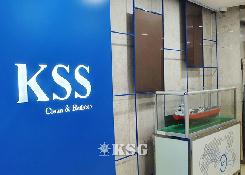
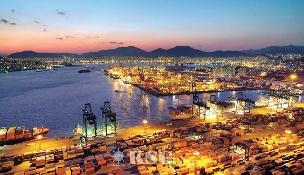
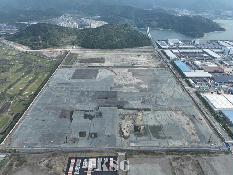
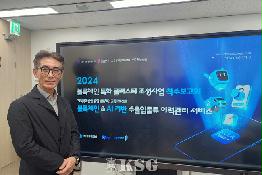
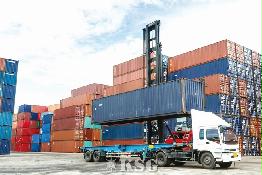
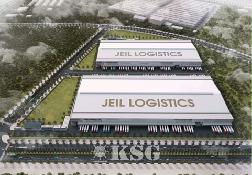
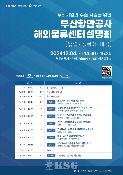
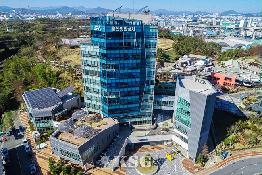
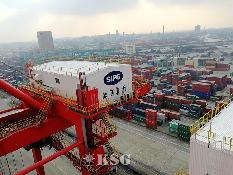
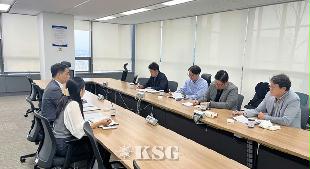
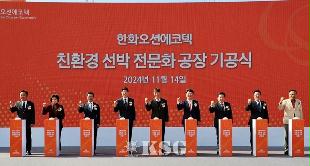

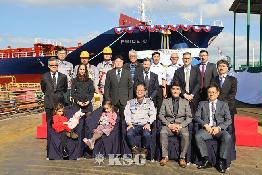
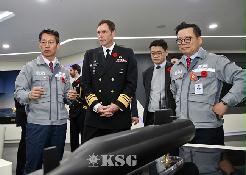
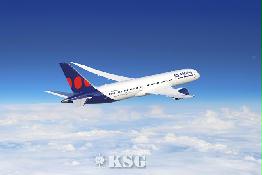
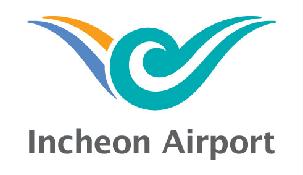
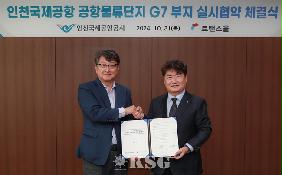

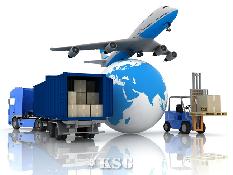

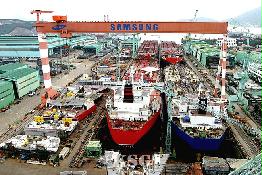
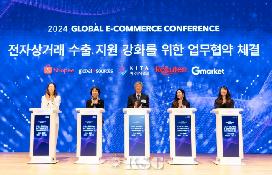
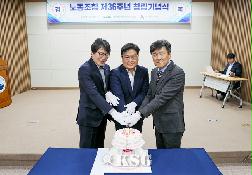
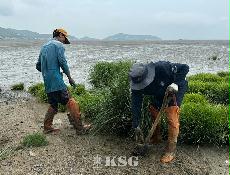
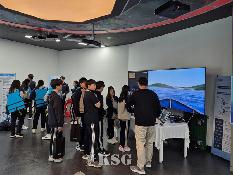
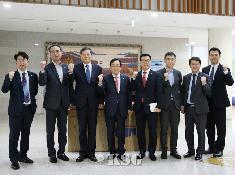
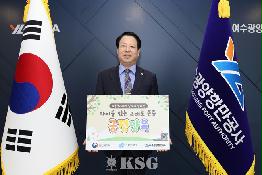
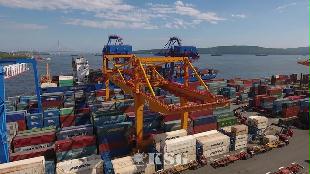
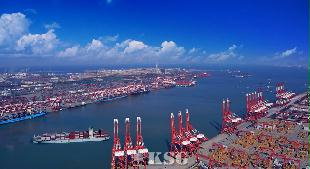
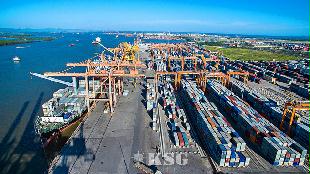
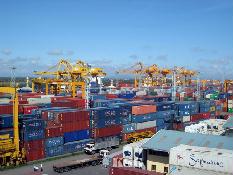

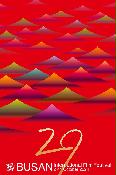




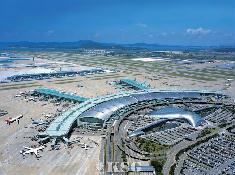
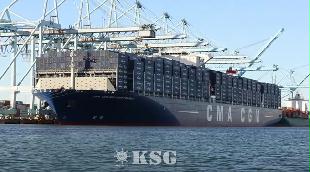
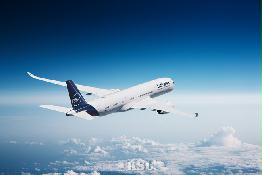
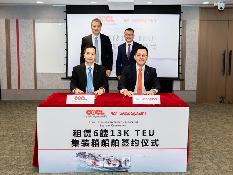
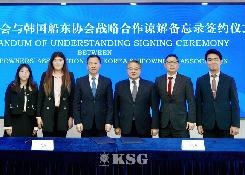









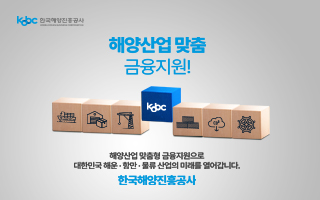
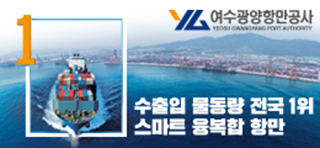












0/250
확인